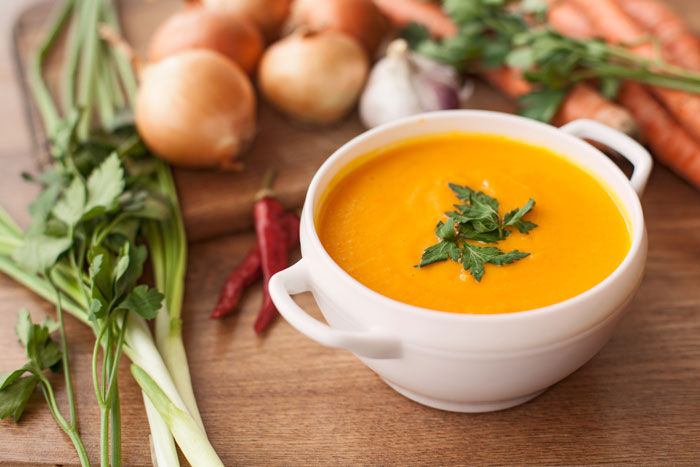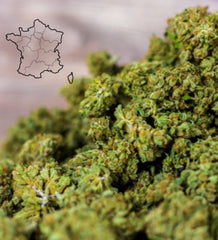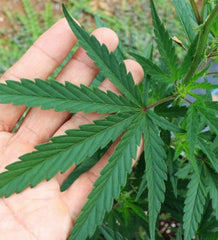
Difficult digestion: what are the solutions?
How do I know if I have difficult digestion?
Formerly called "liver attack," indigestion occurs when something has been digested incorrectly.
It could be a spoiled product, a food to which one is allergic, too much alcohol or too much food. The digestive juices, of bile origin, whose role is to emulsify fats to facilitate their absorption by the intestine and therefore digestion, can no longer keep up.
In this case, we find ourselves bloated and/or nauseous, suffering from abdominal cramps and suffering from vomiting and/or diarrhea , or even in some cases fever.
Long, heavy meals requiring long periods of sitting still can be aggravating factors.
Why do I have digestive problems: the different causes?
Generally, digestive problems are caused by external factors such as poor eating habits, overeating or eating the wrong foods, excessive alcohol consumption, etc.
Some people are also susceptible to aerophagia because they swallow too much air while eating, which can cause significant discomfort and belching.
Also, any gastrointestinal disturbance, as well as any illnesses that harm the health of the liver and pancreas , can alter digestion since they actively participate in the digestion process.
Additionally, people with mental health problems, such as anxiety , are also more likely to have digestive problems, not to mention being overweight or smoking and drinking alcohol , which impair digestion, acidify the body and are highly inflammatory.
Finally, certain medications such as aspirin, treatments for gastric reflux (proton pump inhibitors), nonsteroidal anti-inflammatory drugs (NSAIDs), antibiotics and treatments for osteoporosis or erectile dysfunction can increase digestive discomfort.
Furthermore, certain periods that disrupt a woman's hormonal balance are also conducive to this type of discomfort. This is particularly the case during pregnancy or menstruation, during which the digestive system is often disrupted.
However, suffering from digestive problems can sometimes be a sign of more serious, underlying illnesses, such as inflammation of the esophagus or stomach (ulcer, gastritis , etc.), gallstones, pancreatitis, gastrointestinal tumors, and even cancer.

The most common symptoms of indigestion
We often notice that we have difficulty digesting when we have a feeling of heaviness in the stomach, which can go as far as giving nausea.
We also have a feeling of satiety that comes quickly even though we have eaten little, bloating, heartburn, belching, cramps, spasms and stomach aches, and even headaches.
If the digestive problems do not last more than 48 hours, there is no cause for alarm. At that point, you just need to adopt a strict diet until everything returns to normal.
It is only when these kinds of symptoms persist for more than six months that we can speak of functional dyspepsia.
The link between our modern lifestyles and digestive disorders...
A sedentary lifestyle, the nature of our diet, stress and lack of sleep are all factors to take into consideration when looking for the causes of our digestive problems.
Lack of movement and physical activity slows down transit and harms digestive comfort. By not working our stomach muscles enough, intestinal motility is reduced, which causes, among other things, a buildup of gas, the evacuation of which is slowed down.
Then, processed food, depleted of vitamins and nutrients, does not help to maintain a healthy and fast metabolism, which will digest better.
Then knowing that our intestines are our third brain and that they are therefore very sensitive to lack of sleep and stress, it is not surprising to see that emotions are felt on transit.
Good reflexes to adopt
After returning from vacation, a festive meal or a gastronomic trip, it is better to adopt a special diet, in order to give our entire digestive system time to find its bearings.
We will focus on vegetables in large quantities, such as asparagus, fennel, celery or leek and we will drink plenty of water to eliminate.In the evening, opt for vegetable soups. Forget the greasy croutons and cream! If you really want to, add skimmed or vegetable milk.
Eat enough at the table, don't snack between meals, and avoid anything that's both fatty and sugary. Your gut needs to rest...
Practice gentle physical activity as often as possible, such as walking, cycling or swimming, to recover faster, activate your blood circulation and get your lymph moving.

Treatments to turn to for digestive problems
Treatments for digestive problems act specifically on the liver, facilitating the production of bile and its secretion in the intestine.
Some plants that have virtues in this direction are also used in the composition of these medicines, such as fumitory, turmeric, boldo, dandelion, artichoke, rosemary and wormwood.
Look for products that contain enzymes needed for digestion to support it and are enriched with activated charcoal, which combats excess gas production.
Therefore, the drugs traditionally used to treat digestive disorders, including those of hepatobiliary origin, are either:
- Cholagogues , which support the evacuation of bile into the intestine;
- Choleretics , which promote the secretion of bile and hepatotropes, such as arginine, legalon, betaine citrate, cantabilin, hepargitol, sulfarem and sorbitol;
- Digestive and dietary enzymes (see pancrelase);
- Activated charcoal (see for carbosylane);
- Plants such as artichoke, lemon balm, milk thistle or fumitory, which have great choleretic or cholagogue properties;
- Homeopathic medicines , such as Bilinium Complex No. 113, Homeoregul, Carominthe, Digestodoron, L114, Billerol, Choleodoron and Gastrocynesin;
- Herbal medicine with Arkogélules with lemon balm, oddibil, chophytol and hepanephrol.

Free yourself from gastrointestinal disorders thanks to CBD
You can also treat your digestive system with a natural and safe alternative for your health, thanks to CBD which acts on:
Inflammation
CBD and gut health are closely linked since inflammation, which is at the heart of digestive problems and illnesses in general, can be reduced or even eradicated with cannabidiol!
CBD is a powerful yet harmless molecule that helps reduce inflammation throughout the body by activating certain endocannabinoid receptors. CB2 receptors then slow the release of pro-inflammatory cytokines, which are responsible for inflammation.
Nausea
Intestinal problems often mean nausea and sometimes even vomiting. This is good news because CBD has an antiemetic effect, regulates serotonin production , and acts in parallel on anamides, which stimulate the antiemetic effects of CB1 receptors.
The pain
When digestion is difficult, pain often follows, linked to inflammation of the gastrointestinal tract. CBD is therefore a supplement of choice since it acts on both of these issues, while also being a natural pain reliever. By taking CBD regularly, you will act on your brain's response to pain, which will be reduced.
The motility of our intestines
Cannabidiol can slow muscle contractions in the digestive tract through its action on opioid receptors, but it also affects the neurotransmitter ACh, which it suppresses. Both affect intestinal motility.






